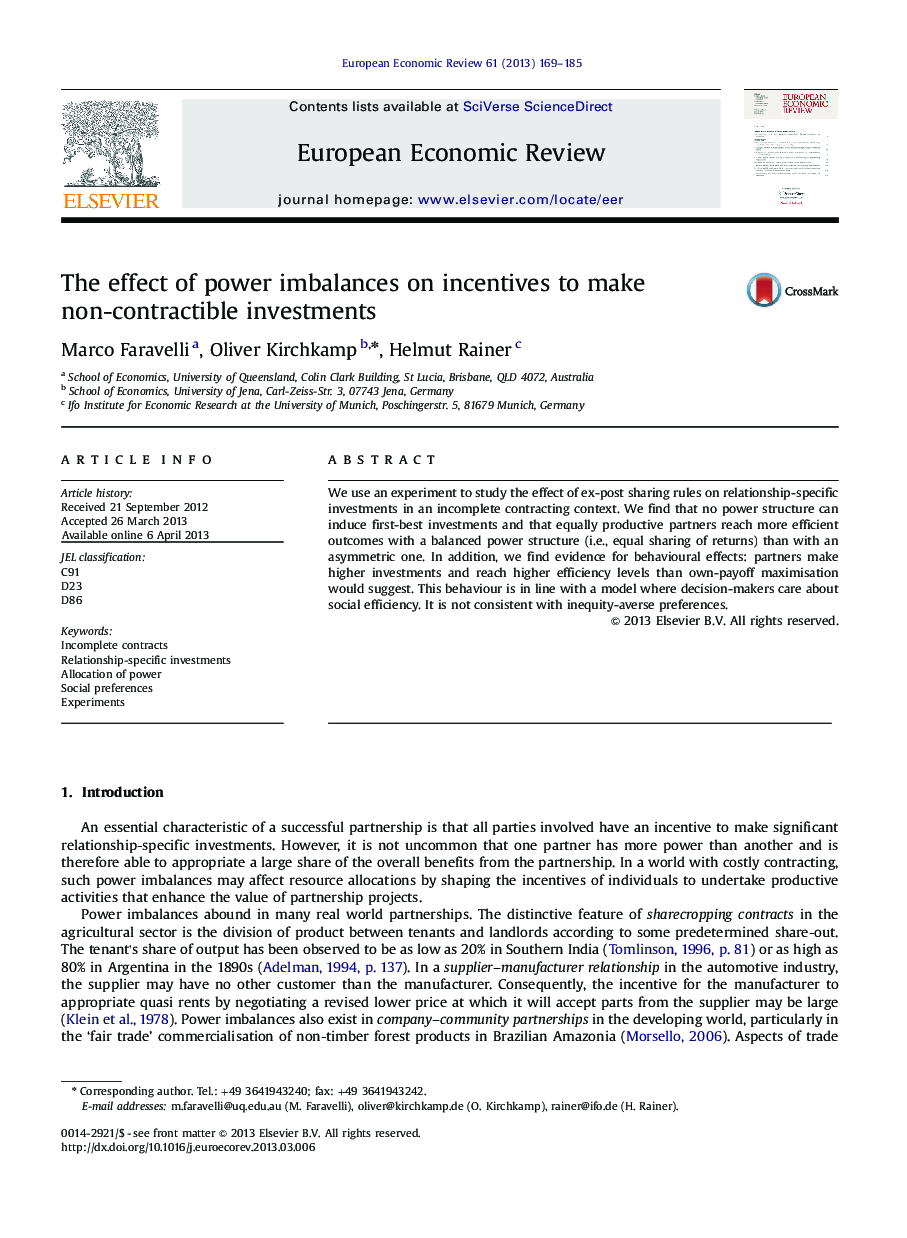| Article ID | Journal | Published Year | Pages | File Type |
|---|---|---|---|---|
| 5066962 | European Economic Review | 2013 | 17 Pages |
â¢We study investments in a partnership with fixed profit sharing.â¢If players are selfish these investments are inefficiently low.â¢In a lab experiment investments are significantly higher than selfish investments.â¢Participants show concerns for social welfare, no inequality aversion, no competitive preferences.â¢Participants share power.
We use an experiment to study the effect of ex-post sharing rules on relationship-specific investments in an incomplete contracting context. We find that no power structure can induce first-best investments and that equally productive partners reach more efficient outcomes with a balanced power structure (i.e., equal sharing of returns) than with an asymmetric one. In addition, we find evidence for behavioural effects: partners make higher investments and reach higher efficiency levels than own-payoff maximisation would suggest. This behaviour is in line with a model where decision-makers care about social efficiency. It is not consistent with inequity-averse preferences.
Graphical abstractDownload full-size image
